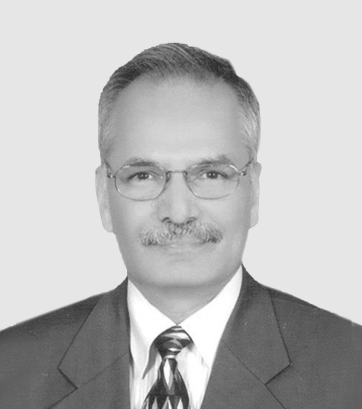Dealing with the Taliban
With the sole exception of the tiny minority of Pakistanis, the vast majority of the communication elite of the country seems overjoyed by the dramatic return of the Taliban to power in Kabul. Those celebrating this development include media pundits, right wing analysts, followers of Pakistan Defense Council founded by Ex-ISI Chief Lt. General Hamid Gul and those who genuinely believe that the new Taliban are a reformed lot who should be given a chance to rule Afghanistan again as they have evolved and have learnt their lessons from their previous stint in power from 1996 to 2001.
Their return to power is presented as a net strategic gain for Pakistan as this development thwarts New Delhi’s designs against Pakistan by helping Islamabad secure its Western front. The Indian loss of strategic influence in Afghanistan coupled with US humiliating defeat in Afghanistan offers Islamabad, according to supporters of the Taliban, new opportunities for Islamabad to regain its lost position of regional preeminence. It is being argued that if Pakistan and Afghanistan join hands they could form a new axis of influence that would be hard to ignore in the new geopolitical configuration of power in South Asia.
As opposed to this extremely rosy-eyed scenario of the potential alliance between Islamabad and Taliban-controlled Afghanistan, skeptics have argued that this is not going to happen for historical and contemporary reasons.
Islamabad and Kabul do not see eye to eye with each other on a range of issues relating to the issue of the status of Durand line, the role of the TTP,transit trade, Taliban’s tolerance of Al-Qaida and Daesh and their manifest unwilling to bend their Islamic belief system to evolve a system of rule in which rights of the minorities including women, freedom of media, space for civil society activism is respected and tolerated.
Critics argue that, as an ideological movement, they represent, to use Hegel’s phrase “crooked timber of humanity” which will break but would not change. More importantly, the Islamic project being pursued by Taliban stands in marked contrast to norms of traditional society in which tribal loyalty; ethnic solidarity and commitment to autonomy take precedence over Islamic principles.
Historically, role of Islam in Pakistan had a modernist impulse that translated into deep popular commitment to pursuit of democracy and creation of an Islamic welfare state. These philosophical differences between the Taliban version of Islam rooted in tribal structures and ethos and those of Pakistan based on modernist view of Islam are bound to result in a clash, trumping all possibilities of a political and economic union between the two countries.
If it is true that the Taliban 2.0 is basically at odds with Pakistan security and geopolitical interests then why does Islamabad seem so supportive of their takeover?
Pakistan’s foreign minister Shah Mahmood Qureshi, for example, has been urging international community ad nauseum to stay engaged with the Taliban-controlled Afghanistan and recognize the “new reality”. Similarly, Pakistan’s Prime Minister has praised the Taliban for “breaking the shackles of slavery” by defeating the United States.
It is a bit of a stretch to present the Taliban as a regenerative modern force just because they have mastered the art of expressing themselves in modern idiom. Nonetheless, the policies pursued by them over the last few weeks betray a huge chasm between their rhetoric and actual behavior.
Pakistan’s tolerant attitude towards Taliban is not informed by considerations of Islamabad’s self-interest but driven by its mistaken view that the regime in Kabul would necessarily be anti-India and pro-Pakistan. Taliban official Sher Mohammed Abbas Stanekzai recently stated that economic ties should be at the centre of Afghan-India relations. “We give due importance to our political, economic and trade ties with India and we want these ties to continue. We are looking forward to working with India in this regard,” Mr. Stanekzaisaid. India has invested US$3 billion over the last 20 years in building Afghan roads, girls’ schools and health clinics and Mr. Stanekzai’s remarks indicate that the Taliban would like India to continue its investments in the country.
Pronouncements such as these clearly indicate that the Taliban are not willing to take side of Pakistan in latter’s dispute with India.
More importantly, the Taliban leadership has totally sidelined Pakistan’s demand that Kabul should hand over TTP’s leadership to Islamabad and deny them any sanctuaries that they have been using to carry out terrorist attack inside Pakistan. TTP had claimed responsibility for murdering 140 innocent students of Army Public School in December 2016.
In a recent interview to a local Pakistani news channel the Taliban spokesperson Zabihullah Mujahid clearly stated that they were not willing to dismantle TTP’s sanctuaries inside Afghanistan and Islamabad should not be expecting any help from Taliban in this regard. Mr. Zabiullah stated:”The issue of the TTP is one that Pakistan will have to deal with, not Afghanistan. It is up to Pakistan, and Pakistani Islamic scholars and religious figures, not the Taliban, to decide on the legitimacy or illegitimacy of their war and to formulate a strategy in response,”. These statements are reminiscent of the previous era of Taliban rule when they had refused to entertain Islamabad’s entreaties not to destroy Bamiyan Bhuddas and managed to disregard Pakistani demand to extradite criminals who has sought protection from the Afghan state. To see how much Taliban have actually changed, Islamabad should threaten hot pursuit of TTP terrorists should they fail to lay down their arms against the Pakistani state. The Taliban regime is desperate to seek international recognition and in its moment of vulnerability Islamabad should lay down its red lines for cooperation with the Taliban especially with regard to TTP. Any effort to appease Taliban would tantamount to disregarding the clear and present danger that their return to power might pose to Pakistan.
The writer is a political scientist and defense analyst.










